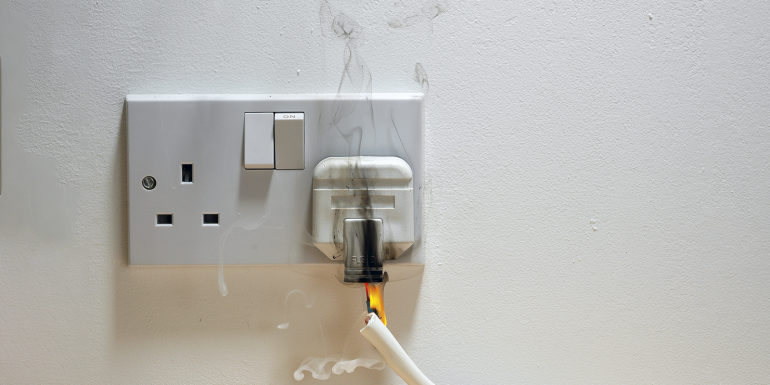Fighting for fire safety

The Recharge report found private tenants in Northern Ireland had less protection from electrical risk than in other parts of the UK. It also suggests how annual savings of almost £9m could be made if electrical hazards in the housing stock were addressed.
The report reviewed the level of electrical risk in Northern Ireland’s housing, with a particular focus on the private rented sector (PRS) and vulnerable groups. In recent years, the PRS in Northern Ireland has grown considerably, becoming the second largest housing tenure. It houses a diverse range of people, including an increasing number of low-paid families and disabled and vulnerable people. In fact, there are now twice as many families with children living in private rentals than in social housing.
In England and Scotland, regular, five-yearly electrical safety checks in the PRS are legally required, with Wales expected to shortly follow suit, but there is no such requirement for private landlords in Northern Ireland. However, annual gas safety checks of PRS properties are legally demanded, even though electricity causes more fires than gas each year (almost 60% of domestic fires in Northern Ireland arise from electricity).
The situation for social housing is also ambiguous. There are no specific legal requirements for regular electrical checks in social rented housing. As best practice, the Housing Executive undertakes five-yearly electrical checks on its properties and after tenant changes. But it is unclear if housing associations have similar processes in place.
At what cost?
“Tenants in Northern Ireland deserve the same level of protection as those in the rest of the UK,” explains Lesley Rudd, Chief Executive of Electrical Safety First. “Electrical fires in people’s homes can not only cause hundreds of thousands of pounds of property damage, the human cost is incalculable. And, not surprisingly, the impact on older and vulnerable people is much greater. Like the rest of the UK, Northern Ireland has an ageing population, so the incidence of illnesses such as dementia will increase. All those with a disability – whether it is mental or physical – face unique challenges in a fire.”
Recharge offers a series of recommendations to enhance electrical safety for all tenures. However, given that the Department for Communities is planning to introduce legislation to improve the safety, security and quality of the PRS, the report’s publication is timely.
“We are calling for forthcoming legislation to include a requirement for mandatory electrical safety checks, which are a safety essential,” adds Rudd. “This was unanimously supported by various stakeholders – including landlord groups – in previous consultations, and our proposals are fair and reasonable. The average cost of an electrical safety inspection is £150-£200. Over a five-year period, this equates to as little as £30 a year. We believe it is a small price to pay to protect people and properties.”
Read Recharge at bit.ly/RechargeNI







